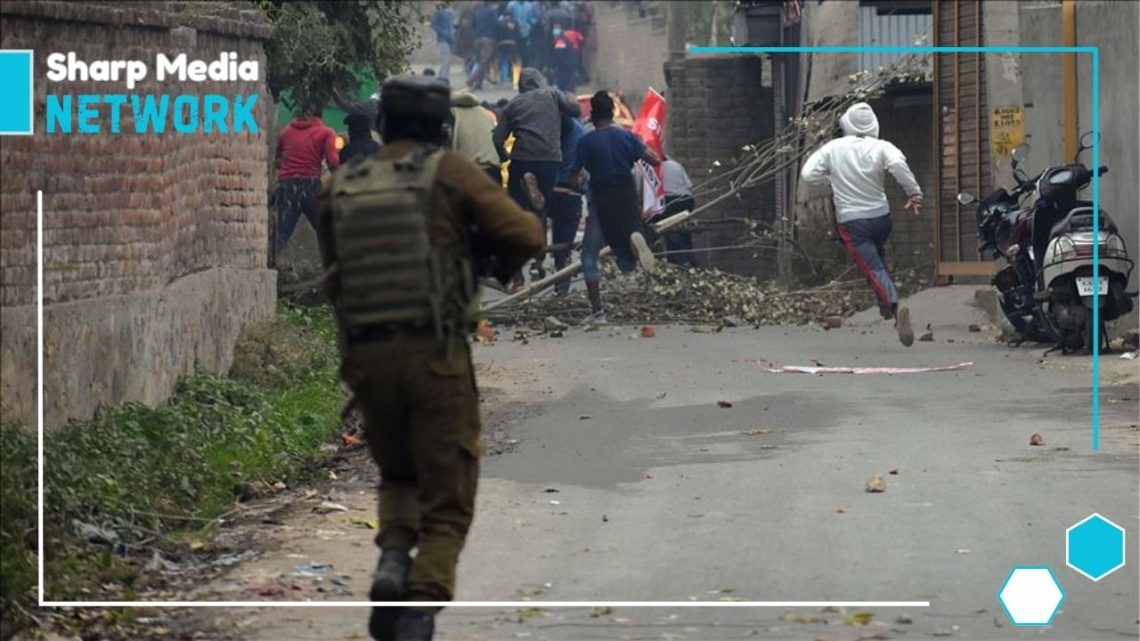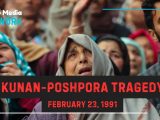
Rising Concerns Over Extrajudicial Killings in IIOJK: Another Civilian Killed in Police Custody
February 20, 2025The tragic deaths of two civilians in IIOK highlight the escalating concerns over extrajudicial killings and the brutal treatment of detainees by the police.
In a disturbing development, a 27-year-old civilian, Muhammad Abid, died in police custody in Ramban district, Indian Illegally Occupied Jammu and Kashmir (IIOJK). Abid had been arrested by the police, who subjected him to severe torture during his detention. His condition deteriorated rapidly, prompting his transfer to a hospital, where he tragically succumbed to his injuries. This incident has raised serious concerns over the widespread use of torture and extrajudicial killings in the region.
Abid’s death comes just a week after another civilian, Mukhan Din, was arrested in Kathua and reportedly tortured to death while in police custody. Like Abid, Din’s death has drawn significant attention to the pattern of brutality and inhumane treatment faced by individuals detained by the authorities in IIOJK.
The deaths of Abid and Makhan Din have become part of a disturbing trend of custodial deaths in IIOJK, a region already fraught with tension and political instability. These incidents highlight the use of torture as a routine practice in detention, with detainees often subjected to harsh and degrading treatment by security forces.
What is even more alarming is that such deaths are frequently dismissed by authorities as suicides or natural causes, with no serious investigation into the circumstances surrounding the victims’ deaths. This pattern of impunity has only added to the growing frustration and distrust among the local population, as people fear that justice for victims of police brutality remains out of reach.
The extrajudicial killings and deaths in police custody have drawn widespread condemnation from human rights organizations and activists, who have long raised concerns about the treatment of detainees in IIOJK. Amnesty International, Human Rights Watch, and other groups have highlighted the ongoing human rights abuses in the region, with particular focus on the excessive use of force and arbitrary detention by Indian security forces.
Despite these calls for accountability, the Indian government has shown little inclination to address these abuses, with authorities often refusing to take action against officers involved in such incidents. This lack of accountability only serves to perpetuate the cycle of violence and injustice in the region.
The families of victims like Abid and Din face significant obstacles in their quest for justice. The lack of transparency and the widespread denial of culpability by authorities make it difficult for victims’ families to seek redress or hold those responsible for such crimes accountable. As a result, many individuals in IIOJK continue to live in fear of arbitrary detention, torture, and even death while in police custody.
The deaths of Muhammad Abid and Mukhan Din underscore the urgent need for greater oversight and accountability in IIOJK, where human rights violations remain rampant. The pattern of extrajudicial killings, torture, and impunity must be addressed by the Indian government, which has an obligation to ensure the safety and dignity of all individuals, regardless of their political affiliation or ethnicity. Until meaningful reforms are implemented, the cycle of violence and injustice will continue to plague the region, leaving many to wonder when the killings will end.

